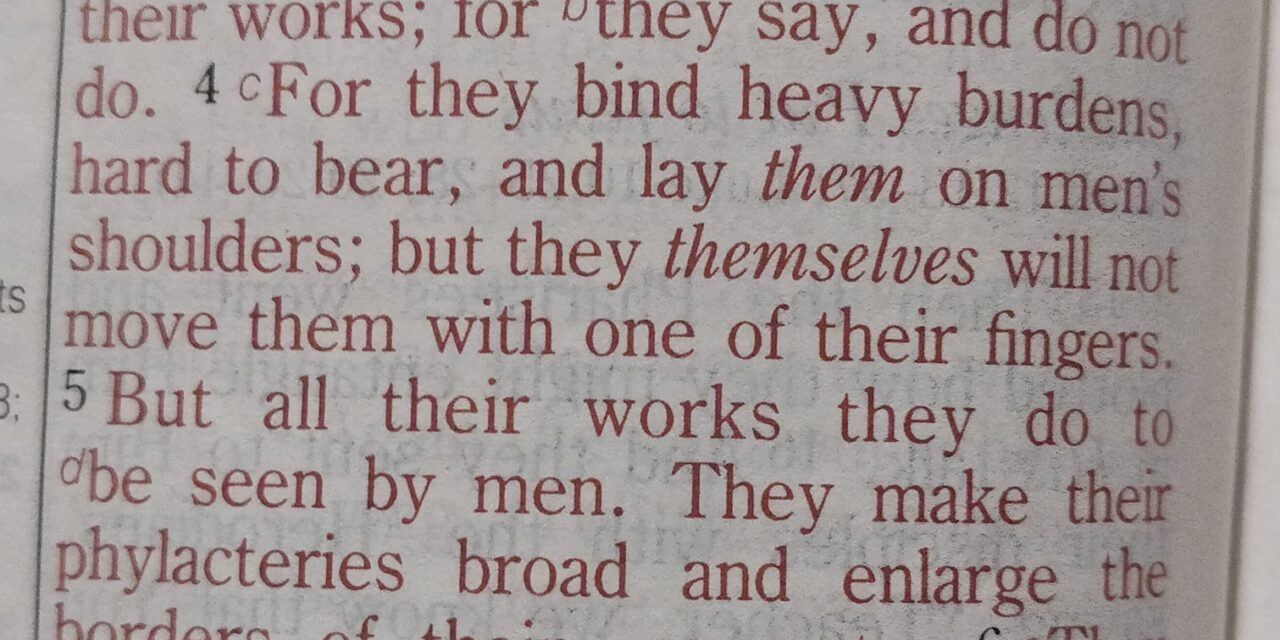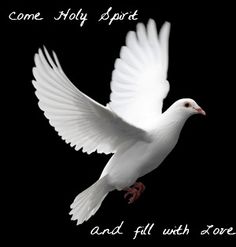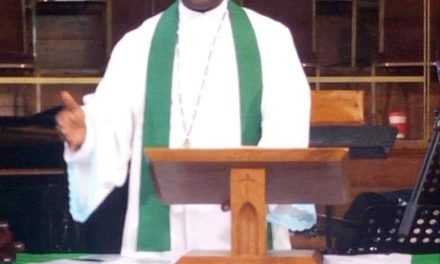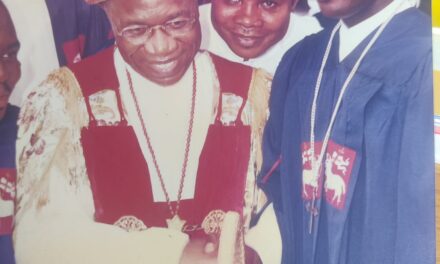The 2020 celebration of All Saints Day on a Sunday presents us a message of hope and personal renewal. In the Gospel reading, Jesus warned against the hypocrisy of the scribes and Pharisees (Matt 23:1012). The scribes and Pharisees, dominated and engrossed with their confused priorities, two-faced theology and behaviour, impure motives, and damaging leadership had lost them the trust of many common people. The spiritual failure of the scribes and Pharisees pointed out by Jesus brings to limelight the importance of the saintly honourable office that the scribes and Pharisees occupied. To be a saint is to be a true steward over a great spiritual treasure in contrast to the personal failure of the scribes and Pharisees and slavery to sin. What the scribes and Pharisees failed to do, in fulfilling the purpose of the church, calling people to repentance, the saints are called to correct and communicate.
Jesus says that the scribes and Pharisees “sat on Moses seat.” With the understanding that Moses was the great lawgiver, a saint of God, to sit on Moses’ seat means teaching by Moses’ authority, the highest authority, holy and available to a teacher of the law under God’s inspiration. In essence, a saint is defined just as the Church is defined as One, Holy, Catholic and Apostolic Church. This definition aptly explained the making of saints as the purpose of the Church. In contrast to the scribe and Pharisees and based on their similar characteristics, the Saints and the Church are called to be holy stewards as expressed at every liturgy and in the reading of the Creed.
Beyond religious appearance, the purpose of all offices in the church and events in ‘Christ’s life, from His Conception to the Resurrection and the Ascension and Pentecost is to make Saints.’ What the scribes and Pharisees failed in making holy, the saints through the teachings and obedience to God’s laws in the church makes holy and true. The reflection is that, ‘a church that does not make saints is not a church, it is merely an institution which abuses the word ‘Church.’ Just as the scribes and Pharisees are not born, ‘saints are not born, they are made. We are all born potentially to become Saints, scribes and Pharisees.’ The only difference between the scribes and Pharisees, is that saints are people who are continually picking themselves up after sinning, continually repenting until they attain holiness, whereas the scribes and Pharisees are two-faced, justifying their sins, proud with impure motives, “for they say, and do not do” (Matt 23:3). Saints are known when it comes to leadership and teaching, nothing is as effective as a good example whereas, for the scribes and Pharisees, nothing is as corrosive as a bad example. Saints as stewards of spiritual treasure have a responsibility to model the behaviours that they preach and teach. Saints personal conduct usually provides a visible missional lessons unlike the scribes and Pharisees that fail to practice what they preach and teach. While saints are distinguished by integrity, lack of integrity undermines the works of the scribes and Pharisees.
The scribes and Pharisees in their unwillingness to get their hands dirty or to waste time, take easy way out thereby “… they bind heavy burdens that are grievous to be borne, and lay them on men’s shoulders; but they themselves will not lift a finger to help them”(v. 4). While the saints in each of us seeks to glorify God, the scribes and Pharisees’ negative examples in each of us seeks to glorify ourselves and the world system. The problem of the scribes and Pharisees is that of pride with ‘a tendency to derail those whose true calling is to humble service.’
All Saints Day as a time of gratitude and inspiration reminds us that we are all saints in the making. All Saints Day calls us to remain faithful to God as Wesleys and others remained faithful to God, aligned themselves with God’s vision of holiness in their lifetime and continue to grow in grace beyond the grave. Saints lives on, even beyond the grave. Saints are God’s partners in transforming the church and the world. Are you a saint? To be a saint is to love and know the Lord, patient, brave and true to God and people. All Saints Day is a call from scribes and Pharisees, to Jesus’ first disciples, to the Christians of Matthew’s day, the Christians before us, and to us today.
Let us prayerfully sing the hymn, ‘For all the saints, who from their labours rest,’ by William Walsham How (1823 – 1897) in reminding ourselves of our call as past of God’s holy people:
1
For all the saints, who from their labours rest;
who to the world by faith their Lord confessed,
your name, O Jesus, be for ever blessed:
Alleluia, alleluia!
2 You were their rock, their fortress, and
their might;
you, Lord, their captain in the well-fought fight,
and in the darkness their unfailing light.
Alleluia, alleluia!
3 So may your soldiers, faithful, true and
bold,
fight as the saints who nobly fought of old
and win with them the victor’s crown of gold.
Alleluia, alleluia!
4 One holy people, fellowship divine!
we feebly struggle, they in glory shine
in earth and heaven the saints in praise combine:
Alleluia, alleluia!
5 And when the fight is fierce, the warfare
long,
faintly we hear the distant triumph-song;
and hearts are brave again, and arms are strong.
Alleluia, alleluia!
6 The golden evening brightens in the west:
soon, soon to faithful warriors comes their rest,
the peaceful calm of paradise the blessed.
Alleluia, alleluia!
7 But look! there breaks a yet more
glorious day;
saints all-triumphant rise in bright array
the king of glory passes on his way!
Alleluia, alleluia!
8 From earth’s wide bounds, from ocean’s
farthest shore
through gates of pearl, ascending, they adore
the Father, Son and Spirit evermore:
Alleluia, alleluia!











Recent Comments